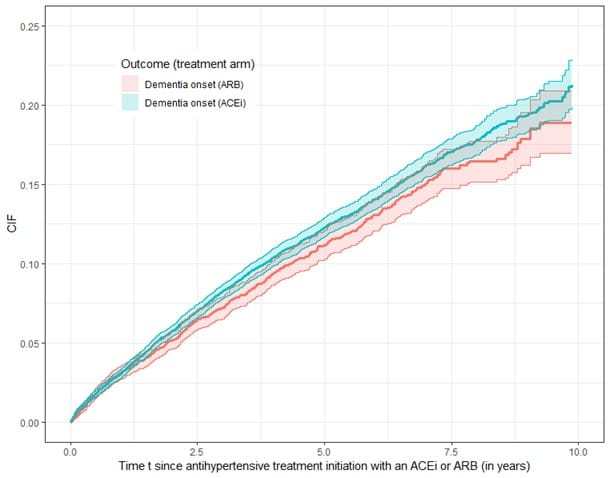Aging
Comparative effectiveness of ACE inhibitors and angiotensin receptor blockers for preventing dementia: a target trial emulation using US electronic health records Marie-Laure Charpignon* Marie Laure Charpignon
Alzheimer’s disease, the most common type of dementia, affects 6.7 million Americans and costs $345B annually. Since disease-modifying therapies are limited, repurposing FDA-approved drugs may offer an alternative, expedited path to preventing dementia. Hypertension is a major risk factor for dementia onset. However, prior observational studies contrasting antihypertensive drug classes (Angiotensin Converting Enzyme inhibitors: ACEI, Angiotensin Receptor Blockers: ARB, and Calcium Channel Blockers: CCB), provided mixed results. We hypothesize that ACEI have an off-target pathogenic mechanism. To test this assumption, we emulate a target trial comparing patients initiating ACEI vs ARB using electronic health records from the US Research Patient Data Registry. We perform intention-to-treat analyses among 25,507 patients aged 50 and over, applying Inverse Propensity score of Treatment Weighting to balance the two treatment arms and accounting for the competing risk of death. In a cause-specific Cox Proportional Hazards (PH) model, the hazard of dementia onset was higher in ACEI vs ARB initiators (HR=1.10 [95% CI: 1.01-1.21]). Findings were robust to outcome model structures (i.e., Cox PH vs nonparametric) and generalized to patients with no hypertension diagnosis at initiation but receiving such drugs for another indication (e.g., heart failure). Ongoing work includes evaluating differential effects by brain penetrance, discovering subgroups of responders, and assessing the mediating role of blood pressure (BP) control with ACEI vs ARB. Future research will incorporate longitudinal markers (e.g., BP, HbA1c, LDL) in time-to-event models and consider stroke incidence or recurrence under ACEI vs ARB initiation as a mediator.

